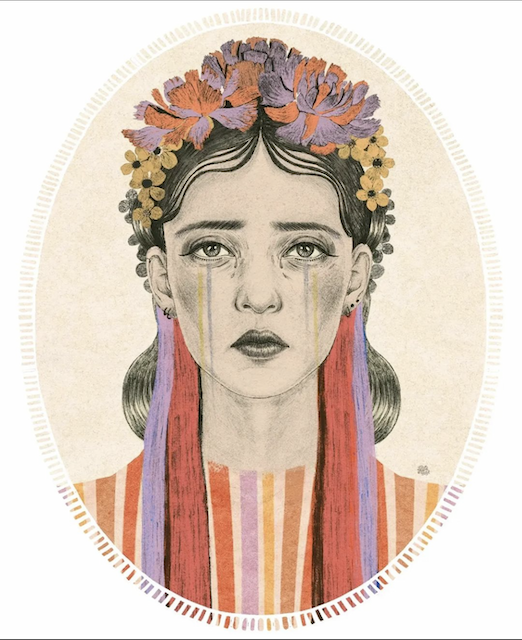For Ukraine
Lily Wood
When February’s last courtier stood
Crescendoing in gypsum declarations,
the power of her fallen majesty,
an elegy for February.
Where an arid westerly wind
Rose aghast over a bruised purple tundra
When the city wintered in long silent rooms
And hollow eyed militia cowered
from Prometheus’s trickster flame
Iron boughs trembled under February’s
brumal lash
Distant strangers holding belladonna soaked helmets
Offer hackneyed orations in dry-blood amphitheaters.
And diplomats crow their hoarse yawp
Over inky rooftops
February lifts her ancient wintery head.
Viewing the brutal attack that Russia has forced upon Ukraine, I found myself at an impasse. Watching Putin’s army bomb hospitals, schools, bloodied bodies of young children, the elderly brandishing Molotov cocktails, heaving masses crowded on trains, the young men and women who proudly don yellow armbands to fight for their freedom and their country. I am shaken profoundly by the horrific nature of Putin’s ongoing war. When I heard Boris Pasternak’s poem about the month of February in the year 1912, I was moved immeasurably by his solitary grief.
“Where rooks resembling charcoaled pears
Crash into puddles thousand strong
Down from the trees, their arid sorrow
Cascades into the eyes’ abyss.
Thawed patches show their black in splotches,
Wind corrugated by the cries,
Precipitous—and all the truer—
Verses compose, aghast, in sobs”
Although written in 1912, Pasternak’s poem spoke to me about the tragic invasion that began on February 24 2022. Usually sticking to the comforting prose of Elliot, Thomas, Yeats, Ginsberg, Dylan, and Zimmerman, I was dumbstruck by Pasternak’s poetry. Haunting and feverish Pasternak emits total control over his literary form, displaying a deathfuge of thawing earth, and coagulating crowds. His verse was a perfect mirror to the images that tear across our media, images of children at borders, of the Russian tanks emblazoned with the frightening Z moving through desecrated cities. Knowing that his family was originally from Odessa, I viewed Pasternak’s writing as prayer, showing Ukraine’s suffering to the rest of the world.
Lily Wood is a freshman at Eugene Lang College at The New School and a writer from Boston. She hopes to one day understand what Bob Dylan is singing about.
